Graham Reid | | 5 min read
Sharon O'Neill: Love Can Be Cruel (from Sharon O'Neill, 1980)
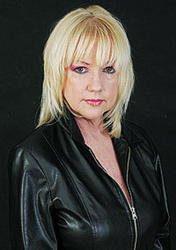
Sharon O’Neill laughs loud and often
about her current profile in Australia, and admits that as a live
performer it is low.
”I’d be lucky if I could half-fill
the Rooty Hills RSL!” she hoots. “It’d be more like the Brass
Monkey down the road -- but that’s what everybody does. Dragon do
it, and that’ll be the first cab off the rank when I start doing my
own shows again.
“I’ll walk around Cronulla and hand
out my fliers saying, ‘please come to my show‘.”
O’Neill, one of this country’s
finest exports as a singer-songwriter is being too self-deprecating:
last year she was part of Australia’s Countdown Spectacular tour
(“yes, but all I did was walk out and do Maxine“); she is a
respected writer whose work, co-written with her longtime partner
Alan Mansfield, has turned up on albums by the late Robert Palmer,
Dragon, Jimmy Barnes and others; she toured in a show of Lennon and
McCartney songs; was with Leo Sayer for three years; sang backing
vocals with Tony Hadley of Spandau Ballet and Paul Young . . .
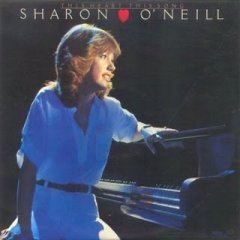 She is also held in great affection in
this country, even though she has lived in Australia for almost 30
years. In 2002 she was part of the hugely successful When the Cats
Away tour, and three years ago was on The Best of the Best tour with
60s stars Ray Columbus, Shane, Larry Morris and others whose music
she grew up on.
She is also held in great affection in
this country, even though she has lived in Australia for almost 30
years. In 2002 she was part of the hugely successful When the Cats
Away tour, and three years ago was on The Best of the Best tour with
60s stars Ray Columbus, Shane, Larry Morris and others whose music
she grew up on.
And O’Neill returnings to New
Zealand for a short season with Margaret Urlich, Debbie Harwood, Annie
Crummer, Shona Laing, Julia Deans and Lisa Crawley under the banner
Give It A Girl.
And O’Neill is in training. She is
going to fitness class (“to get my lung capacity back“) and has
just spent this fine Sydney morning doing vocal exercises.
She pitches some songs lower these days
(“yes, my balls have dropped”) and laughs about recently
listening to Luck’s on Your Table from her ’79 debut album This
Heart, This Song.
“It really hurt because I couldn’t
do it like that anymore, so I’ve just taken it down a tone.”For
Give It A Girl she expects to also sing Maxine, Words, Young Years
which she and keyboard player Mansfield wrote for Dragon . . .
She admires the songwriting of Norah
Jones, Keith Urban, the Dixie Chicks and John Mayer . . . “but I
can’t stand reading about him in the tabloids,“ she says, noting
that too often the artist’s story gets in the way of the music.
Some people in this country might say
that of her early career.
In the late 70s, O’Neill was this
country’s brightest hope and someone we invested our faith in: she
was a woman writing and singing her own songs which was a rarity at
the time; was cracking hits which connected with an audience (Luck’s
On Your Table, Asian Paradise among them) and she was signed to a
major record label (CBS, now Sony) invested big money in her.
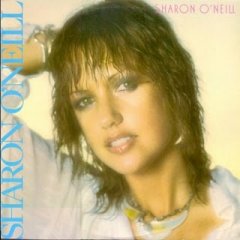 She’d won top female vocalist in ‘78
and ‘79 at the music awards; in ‘80 she had her own Saturday
night television special in prime time; her second album was produced
by American Jay Lewis and was released in Japan; CBS Australia picked
up her debut and the follow-up Sharon O’Neill which they repackaged
for domestic consumption . . .
She’d won top female vocalist in ‘78
and ‘79 at the music awards; in ‘80 she had her own Saturday
night television special in prime time; her second album was produced
by American Jay Lewis and was released in Japan; CBS Australia picked
up her debut and the follow-up Sharon O’Neill which they repackaged
for domestic consumption . . .
When she made the inevitable moved to
Sydney in late ‘80 journalists charted her progress: there was a
very serious story in The Listener about how things were going and
the marketing push she was getting.
And things were going very well.
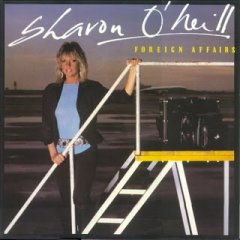 She’d opened for then hit-maker Boz
Scaggs, her album Maybe was produced by another American hot-shot
Peter McIan; she played in Japan; Maxine (see clip) from her album Foreign
Affairs in ‘83 was huge; and she kept writing songs.
She’d opened for then hit-maker Boz
Scaggs, her album Maybe was produced by another American hot-shot
Peter McIan; she played in Japan; Maxine (see clip) from her album Foreign
Affairs in ‘83 was huge; and she kept writing songs.
That was her passion and from the start
she’d said when the touring life was over she’s still be a
songwriter. And so it has been.
O’Neill’s career -- not in the
spotlight as previously -- has been remarkably successful. But when
she left for Australia she was carrying the hopes of the fledgling
music industry here looking for an internationally successful export.
“I didn’t even think about that, it
was out of my hands. I’d run the gamut in New Zealand then the
record company thought, ‘that’s it for here, let’s chuck her
across the pond’.
“With my Kiwi band -- Dave Dobbyn was
in it -- it still felt like home and we were just finding our feet.
The record company got us the gigs with Boz Scaggs around Australia
and then some of our own and it started to snowball.
“I was caught up in it, and it made
sense. I wasn’t really thinking, ‘I’d better make it‘,” she
laughs.
Her current bio notes that in 1990
after her album Edge of Winter, she “settled back into writing
songs for others”.
“Writing for other people has been
completely circumstantial, for instance Alan was in Dragon for 20
years so when they were going to do an album we’d pitch in with
songs.
“With Robert Palmer, Alan was with
him for many years and we spent a lot of time in Europe staying in
his house. We were going over to stay with him and we’d written
True Love here, but when we got over he’d finished his album. But
he played the song and loved it, and two days later we were in Milan
recording it. And that was his last single.
“So I never ‘settled back‘. I’ve
got too many songs of my own right now. The problem is not having
Sony Music to put them out.
“And you have to laugh about that -- and I’m sure they would!”
Interested in reading more, about another expat Kiwi singer? Then go here.


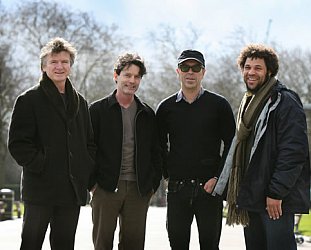


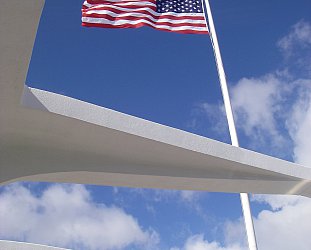
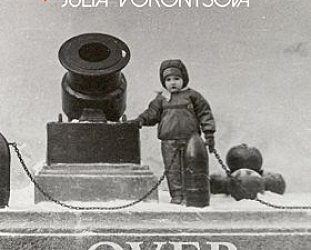
post a comment